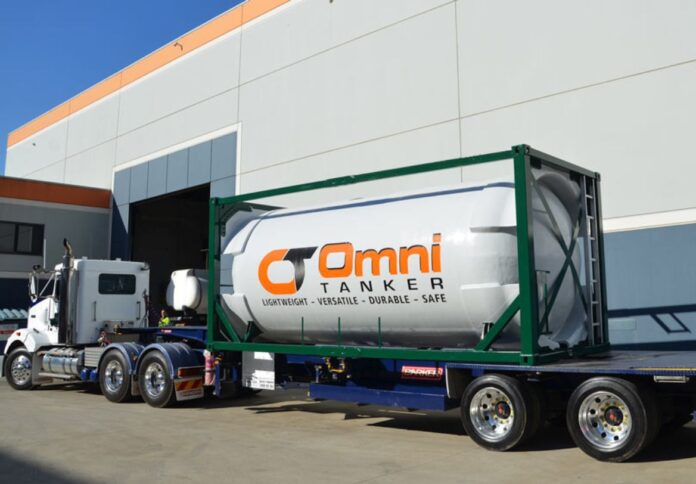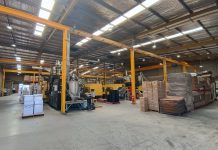
Australian composite materials company Omni Tanker has launched a world-first composite triple road train that can move nearly 100 tonnes of payload in a single haulage run.
Omni Tanker collaborated with Mick Murray Welding to develop the triple road train solution with a 15 per cent gain in payload, reducing the number of trips and associated emissions. The increase in the payload is a result of the advanced carbon fibre composite construction.
“Omni Tanker is combining advanced manufacturing technology with aerospace materials and heavy-duty trailers to deliver game-changing liquid payloads for the critical minerals processing industry – right here in Australia,” Daniel Rodgers, chief executive and founder of Omni Tanker.
“Mick Murray Welding was crucial in achieving project success for our first product in the mining sector. They knew what the mining industry demanded, and they knew the harsh operating conditions they operate in, so it made absolute sense to combine Omni Tanker’s lightweight tanks with their high-tensile steel-skeletal trailers,” Rodgers added.
The triple tanker was designed to reduce operational costs for its customer Townsville Logistics and employs advanced composite materials and engineering practices commonly found in aerospace.
It features world-first Mould-in-Baffles to better manage the movement of fluid in road tankers, enhancing safety, while advanced fabrication techniques also reduce the weight of the trailer units.
In a media release, Omni Tanker said its Mould-in-Baffle principle, developed five years ago, is now an essential part of its innovation portfolio as the technology sets to enter service in the Australian market, as well as export markets in North America and Europe.
The trains have now been delivered to Townsville Logistics and will be used in heavy acid transport across Northern Australia, with greater payload capacity.
“Via advanced manufacturing techniques and outstanding partners, we were able to boost the payload carrying capacity of road tankers for chemical liquids from the current 85 tonnes per load, typical of stainless-steel tanks, to 98 tonnes – a fifteen per cent uplift,” Rodger said.



















